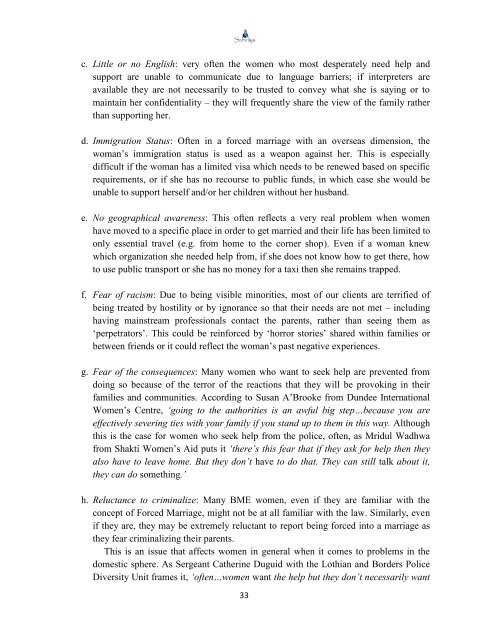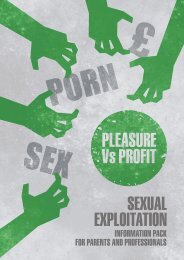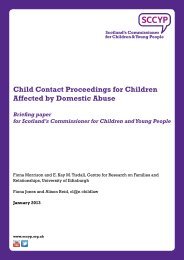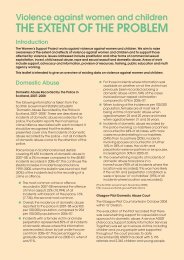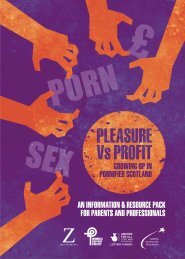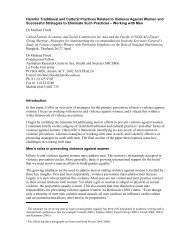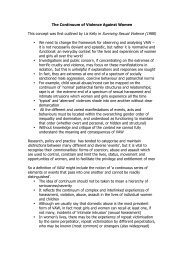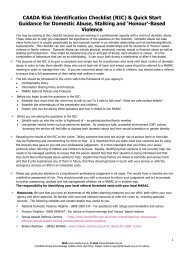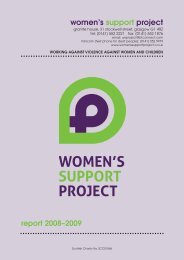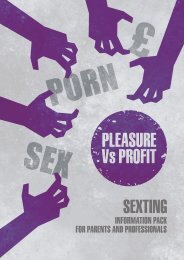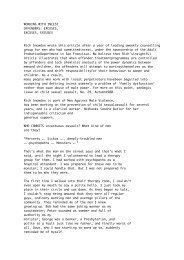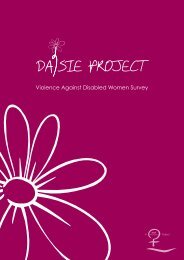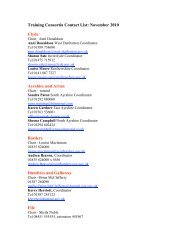WOMEN AND FORCED MARRIAGE IN SCOTLAND
women and forced marriage in scotland - Women's Support Project
women and forced marriage in scotland - Women's Support Project
- No tags were found...
Create successful ePaper yourself
Turn your PDF publications into a flip-book with our unique Google optimized e-Paper software.
c. Little or no English: very often the women who most desperately need help and<br />
support are unable to communicate due to language barriers; if interpreters are<br />
available they are not necessarily to be trusted to convey what she is saying or to<br />
maintain her confidentiality – they will frequently share the view of the family rather<br />
than supporting her.<br />
d. Immigration Status: Often in a forced marriage with an overseas dimension, the<br />
woman’s immigration status is used as a weapon against her. This is especially<br />
difficult if the woman has a limited visa which needs to be renewed based on specific<br />
requirements, or if she has no recourse to public funds, in which case she would be<br />
unable to support herself and/or her children without her husband.<br />
e. No geographical awareness: This often reflects a very real problem when women<br />
have moved to a specific place in order to get married and their life has been limited to<br />
only essential travel (e.g. from home to the corner shop). Even if a woman knew<br />
which organization she needed help from, if she does not know how to get there, how<br />
to use public transport or she has no money for a taxi then she remains trapped.<br />
f. Fear of racism: Due to being visible minorities, most of our clients are terrified of<br />
being treated by hostility or by ignorance so that their needs are not met – including<br />
having mainstream professionals contact the parents, rather than seeing them as<br />
‘perpetrators’. This could be reinforced by ‘horror stories’ shared within families or<br />
between friends or it could reflect the woman’s past negative experiences.<br />
g. Fear of the consequences: Many women who want to seek help are prevented from<br />
doing so because of the terror of the reactions that they will be provoking in their<br />
families and communities. According to Susan A’Brooke from Dundee International<br />
Women’s Centre, ‘going to the authorities is an awful big step…because you are<br />
effectively severing ties with your family if you stand up to them in this way. Although<br />
this is the case for women who seek help from the police, often, as Mridul Wadhwa<br />
from Shakti Women’s Aid puts it ‘there’s this fear that if they ask for help then they<br />
also have to leave home. But they don’t have to do that. They can still talk about it,<br />
they can do something.’<br />
h. Reluctance to criminalize: Many BME women, even if they are familiar with the<br />
concept of Forced Marriage, might not be at all familiar with the law. Similarly, even<br />
if they are, they may be extremely reluctant to report being forced into a marriage as<br />
they fear criminalizing their parents.<br />
This is an issue that affects women in general when it comes to problems in the<br />
domestic sphere. As Sergeant Catherine Duguid with the Lothian and Borders Police<br />
Diversity Unit frames it, ‘often…women want the help but they don’t necessarily want<br />
33


